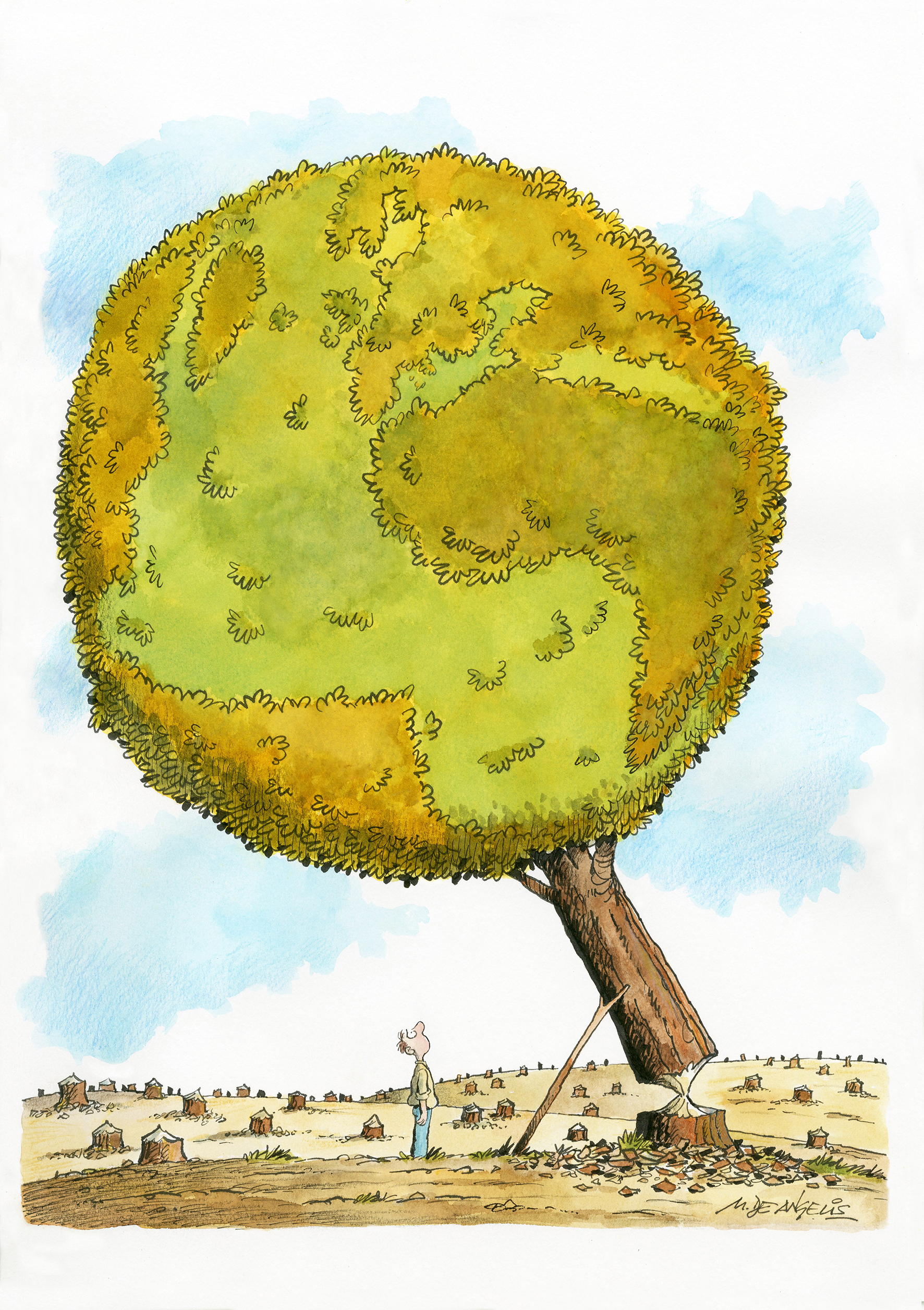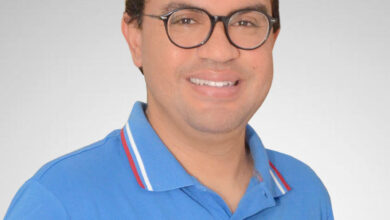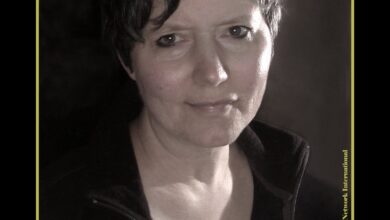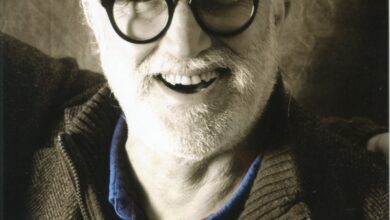CartoonistsEurope
Marco De Angelis- Italy

Marco De Angelis (born in Rome, Italy, in 1955) is a professional journalist, cartoonists, illustrator, and graphic designer.
Since 1975 He published in 200 newspapers in Italy and abroad: Il Popolo, LaRepubblica, (he was a redactor in these two daily newspapers), Il Messaggero, Il Mattino, Panorama, Grazia, I Gialli Mondadori, Help!, ComicArt, Comix, Confronti, TP Trasporti Pubblici, Washington Post, Chicago Tribune, Los Angeles, Herald, Los Angeles Times, Tampa Tribune, Courrier International, Le MondeNebelspalter, Eulenspiegel, Yez, Feferon, Ilustrovana Politika. NY TID, WittyWorld, Cartoon Movement, Cartoon Home Network International, Cartoon Arts International, The New York Times Syndicate, Go Comics, and Andrews McMeel Universal published and distributed his works worldwide.
He is editor in chief of the humor magazine online www.buduar.it.
He is also the illustrator of many children’s books for the major publishers: De Agostini, Giunti, La Scuola, Salani, Lapis, ELI (28 magazines in 40 countries), Cinque Lune, San Paolo, etc.
He collaborated as an illustrator and graphic designer with many associations,
companies, and TV networks (RAI, Telemontecarlo, and others).
Participating in exhibitions since 1972, he is a winner of over 140 awards worldwide, among which the Golden Palm in Bordighera 1997, the First Prize in Istanbul 1987 and 2016, two Prizes Council of Europe, and prizes in Belgrade, Tehran, Krusevac, Tokyo, Skopje, Sisak, Solin, Marostica, Dolo, Fano, Galati, Olen, Legnic a, Porto, Caldas da Rainha, etc. He is a member of Cartooning for Peace and the Scientific Council of Librexpression.
A&Q
-Do you feel free to express yourself in art?
Yes, fortunately I have no limitations, both in my personal life and in the society where I live. I live in a country where there is freedom of art and thought, and for this I consider myself lucky, both as an artist and as a cartoonist. But since we now live in a globalized world and I myself publish a lot worldwide (thanks also to the web), I have to take into account the limits imposed by other societies, cultures and political regimes.
-Have you experienced any form of censorship? What happened?
In my country in the past I have had some protests for political cartoons published in daily newspapers, but nothing more: normal political dialectic, far from being considered censorship. Abroad, however, I can cite the case of a catoon published by the Courrier International in which I portrayed the Iranian Ajatollah Khamenei incinerating the demonstrators with lightning strikes from his turban drawn like a black cloud. The Lebanese edition of the newspaper censored it, because of protests by the most intransigent pro-Iranian Islamists. Even post-it stickers were used to cover the illustration. Some Lebanese journalists defended my freedom of satire, but it didn’t help much.
-Do you think there are limits to what art can say, or is it OK to say anything?
I think art can say everything and can manifest itself with any technique. It’s then up to the artist, who freely chooses how to express himself, and whoever looks at it to understand if the work has a real meaning or an aesthetic value or if it is a pure experimentalism. If we talk about humor, satire must have the absolute freedom to be able to comment on everything with the use of irony and graphic metaphor, it’s in its DNA. If it’s a topical satire, it becomes a real journalistic comment with its own critical message, often of great impact.
However, we must always be able to use intelligent humor and not just to offend or mock. Thanks to the internet today anyone can see what we publish and unfortunately we have to take into account mentality and cultures different from ours, which are often unable to accept irony in its most universal meaning, and react with hysteria and violence.
-How did it affect you as a cartoonist/person?
As a child I began to appreciate and make my the sense of humor, thanks to the major authors of cartoons I read in the newspapers and comics magazines, until it became my profession (alongside with my journalistic one) and also my philosophy of life. I have always pursued my vision by looking at things through this particular lens of irony; this helped me in moments of small and great difficulty, also erasing feelings of pessimism thanks to the flickering and smiling light of optimism.














Can you be more specific about the content of your article? After reading it, I still have some doubts. Hope you can help me. https://accounts.binance.com/ro/register-person?ref=P9L9FQKY
Your article helped me a lot, is there any more related content? Thanks!